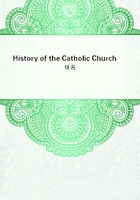
第184章
For months before Parliament met (Feb. 1536) everything that could be done by means of violent pamphlets and sermons against the monks and the Papacy was done to prepare the country for the extreme measures that were in contemplation. The king came in person to warn the House of Commons that the reports of the royal commissioners, showing as they did the wretched condition of the monasteries and convents called for nothing less than the total dissolution of such institutions. The members do not appear, however, to have been satisfied with the king's recommendations, and it was probably owing to their feared opposition to a wholesale sacrifice of the monasteries that, though the commissioners had made no distinction between the larger and the smaller establishments the measure introduced by the government dealt only with the houses possessing a yearly revenue of less than ā200.
Even in this mild form great pressure was required to secure the passage of the Act, for though here and there complaints might have been heard against the enclosures of monastic lands or about the competition of the clerics in secular pursuits, the great body of the people were still warmly attached to the monasteries. Once the decree of dissolution had been passed the work of suppression was begun.
Close on four hundred religious houses were dissolved, and their lands and property confiscated to the crown. The monks and nuns to the number of about 2,000 were left homeless and dependent merely on the miserable pensions, which not unfrequently remained unpaid. Their goods and valuables including the church plate and libraries were seized. Their houses were dismantled, and the roofless walls were left standing or disposed of as quarries for the sale of stones.[35] Such cruel measures were resented by the masses of the people, who were attached to the monasteries, and who had always found the monks and nuns obliging neighbours, generous to their servants and their tenants, charitable to the poor and the wayfarer, good instructors of the youth, and deeply interested in the temporal as well as in the spiritual welfare of those around them. In London and the south-eastern counties, where the new tendencies had taken a firmer root, a strong minority supported the policy of the king and Cromwell, but throughout England generally, from Cornwall and Devon to the Scottish borders, the vast majority of the English people objected to the religious innovations, detested Cromwell and Cranmer as heretics, looked to Mary as the lawful heir to the throne in spite of the decision of the court of Dunstable, and denounced the attacks on the monasteries as robbery and sacrilege. The excitement spread quickly, especially amongst the peasants, and soon news reached London that a formidable rebellion had begun in the north.
In October 1536 the men of Lincoln took up arms in defence of their religion. Many of the noblemen were forced to take part in the movement, with which they sympathised, but which they feared to join lest they should be exposed to the merciless vengeance of the king.
The leaders proclaimed their loyalty to the crown, and announced their intention of sending agents to London to present their petitions. They demanded the restoration of the monasteries, the removal of heretical bishops such as Cranmer and Latimer, and the dismissal of evil advisers like Cromwell and Rich. Henry VIII. returned a determined refusal to their demands, and dispatched the Earl of Shrewsbury and the Duke of Suffolk to suppress the rebellion. The people were quite prepared to fight, but the noblemen opened negotiations with the king's commanders, and advised the insurgents to disperse. The Duke of Suffolk entered the city of Lincoln amidst every sign of popular displeasure, although since the leaders had grown fainthearted no resistance was offered. Those who had taken a prominent part in the rebellion were arrested and put to death; the oath of supremacy was tendered to every adult; and by the beginning of April 1537, all traces of the rebellion had been removed.
The Pilgrimage of Grace in the north was destined to prove a much more dangerous movement. Early in October 1536 the people of York, determined to resist, and by the middle of the month the whole country was up in arms under the leadership of Robert Aske, a country gentleman and a lawyer well-known in legal services in London. Soon the movement spread through most of the counties of the north. York was surrendered to the insurgents without a struggle. Pomfret Castle, where the Archbishop of York and many of the nobles had fled for refuge, was obliged to capitulate, and Lord Darcy, the most loyal supporter of the king in the north, agreed to join the party of Aske.